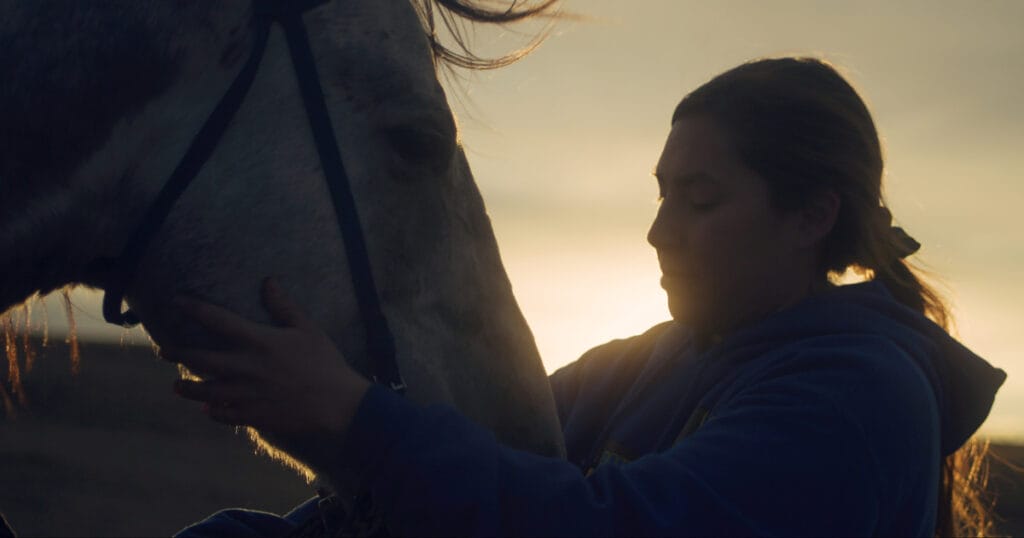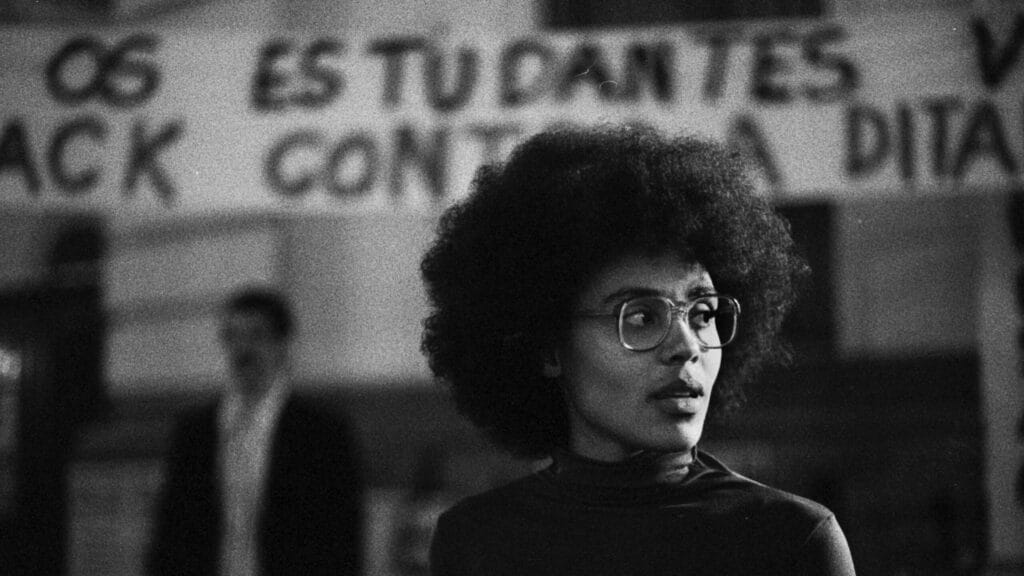Read also:
How to Watch FX Live Without CableHow To Watch AMC Without CableHow to Watch ABC Without CableHow to Watch Paramount Network Without CableAn overview of the diverse features selected to screen at this year’s Austin Film Festival.
This piece was written during the 2023 SAG-AFTRA strike. Without the labor of the actors currently on strike, the work being covered here wouldn’t exist.
A cycle rickshaw, adorned with a Texas flag billowing in the wind, whizzes by while blaring a Luke Combs tune. Massive murals of Willie Nelson and Post Malone gaze down on passersby like the eyes of T.J. Eckleburg. A man in a Blue Lives Matter shirt waltzes past a “PROTECT TRANS KIDS” sign planted on the lawn of a Catholic Church. Welcome to Austin, Texas, a Southern hotspot that, for the final weekend of October 2023, wasn’t just home to these and other oddball sights, but also the backdrop for the 30th edition of the Austin Film Festival. Though not as world-famous as the Toronto International Film Festival or Cannes, Austin’s annual ode to cinema is still a much-ballyhooed event attended by freelance journalists, aspiring screenwriters, iconic filmmakers, and everyone in between.
Not every movie screened at the 2023 Austin Film Festival was a new classic in the making. However, the versatility of cinema as an artform, the joys of the theatrical experience, and the ways movies can give strangers common ground to bond over were all glaringly apparent throughout this cinema extravaganza. Let’s break down these four standout features and why this eclectic crop of cinematic storytelling was just as memorable as any of those mammoth murals scattered around Austin.
Logan Red Crow wants to race. Specifically, this member of the Siksika Nation in Alberta, Canada wants nothing more than to race horses like her father. In the hands of director Banchi Hanuse, the documentary Aitamaako’Tamisskapi Natosi: Before The Sun beautifully underscores the passion underlining Logan Red Crow’s fixation. Sometimes, this is done in beautifully understated means, like scenes of Red Crow giving her horses massages for their feet or quietly uttering soothing words to them before a big race. There’s a beautiful bond between animal and human always tenderly displayed on-screen.

Meanwhile, Hanuse’s intimate gaze behind the camera makes room for gorgeous sequences where the feature’s central subject rides on a horse across expansive landscape. Simultaneously, through voice-over, she discusses her feelings related to matters like her deceased grandmother. These feelings are expansive as backdrops, with this mixture of testimony and imagery proving incredibly moving. Even if you know next to nothing about horse races, you’ll inevitably find yourself incredibly wrapped up in Logan Red Crow’s time on and off the track in Aitamaako’Tamisskapi Natosi: Before The Sun.
What if Nathan Fielder fell head over heels for Amy Adams as Jennifer from Jennifer’s Body? That’s a good way to begin describing the enjoyable madness within the horror romantic-comedy Cannibal Mukbang, which emerges from the delightfully warped imagination of writer/director/editor Aimee Kuge. The actual plot here focuses on ordinary customer service representative Mark (Nate Wise) having a run-in with Ash (April Consalo), a lady who loves horror movies, glittery eye makeup, and devouring human flesh. So begins an inspired feature that feels like the love child of Sam Raimi and any romantic comedy anchored by Albert Brooks. Wisely, Kuge opts to execute both the graphically violent cannibal carnage and the central romance with equal levels of conviction. Neither element is being condescended to at the expense of the other. There’s an intimate heart to the relationship material while the gnarly violence is executed (no pun intended) with plenty of energetic gore.
The result is a tonally complicated piece that often wrings laughs out of the clashes between affection and dismemberment (like any time our two leads have a heart-to-heart char surrounded by limbs) but also gets you shockingly invested in the plight of these people. That feat is heavily informed by the performances, particularly a tour de force turn from April Consalo. She does unforgettable work embodying every 2000s romantic-comedy leading lady (Zooey Deschanel would be proud of her!) and the riveting chaos of Isabelle Adjani in Possession with consistent degrees of aplomb. That mixture is truly a sight to behold! Her acting chops, much like Kuge’s sterling filmmaking, transform Cannibal Mukbang from a potentially gimmicky exercise into something special. Throw in great visual touches, like the use of Super 8 film during a flashback sequence and outstanding practical effects work on the kills, and it’s no wonder Cannibal Mukbang becomes a delectable concoction well worth chowing down on.

During the military dictatorship that ruled over Brazil for two decades, a slew of people (largely those opposing the fascist government and individuals belonging to marginalized identities) were abducted by larger forces and were never seen again. These souls have become known as “the disappeared,” with many of them just vanishing from history altogether. Writer/director Vera Egito creates a cinematic document bearing witness to young revolutionaries who dared to stand up to oppression with The Battle. This project, divided into 21 segments each captured in an extended single take, follows an assortment of left-wing students and teachers at the University of São Paulo as they confront a collection of violent fascists right across the street.
In spending so much time with these outmatched characters, Egito makes sure to depict the protestors as being far from a monolith. A wide array of personalities exists on this campus, with wary protagonist Lilian (Pâmela Germano) being radically different in her demeanor than gusto student leader Benjamin (Caio Horowicz). Meanwhile, Egito’s emphasis on following these people through their most intimate moments and not just in their confrontations with oppressive forces restores the nuanced humanity to these rebels that the dictatorship sought to erase. Such humanity is reflected in many creative ways throughout the runtime, but it’s especially vivid in a trippy sex scene that uses surrealistic imagery to capture the sensation of two bodies uniting in physical intimacy.

While the government sees future corpses in these students, this sequence depicts how these young characters see each other as far more than that. Such compelling human elements are deftly mixed with a claustrophobic visual aesthetic echoing masterpieces like The Battle of Algiers in communicating an inescapable sense of dread. The Battle is a haunting accomplishment, an endlessly inspired production constantly finding new ways to cinematically reflect the experiences of folks in constant danger of becoming “the disappeared.”
We never leave the past behind. Flickers of yesteryear always creep into our modern-day lives, they’re impossible to escape. This inevitability is beautifully framed in All of Us Strangers, a new feature from writer/director Andrew Haigh (adapting the novel Strangers by Taichi Yamada) centered on middle-aged Adam (Andrew Scott). He’s a figure who feels adrift in the real world, even as he begins to develop a relationship with his neighbor Harry (Paul Mescal). However, a chance return to his old hometown allows him to somehow reunite with his parents (played by Jamie Bell and Claire Foy) who were killed when he was only 12.
Haigh’s trademark style of quiet cinema is the perfect vessel for this narrative and allows the only four prominent actors in Strangers a chance to really flourish. Scott especially excels at communicating worlds of bottled-up longing with just his eyes, as he silently wanders around a park or sidewalk. The script is also razor-sharp in the dialogue exchanged by grown-up Adam and his parents. Their interactions feel so achingly real, particularly with his mother. These captivatingly moving interactions are captured through imagery that alternates between the warm glow of nostalgia to visuals reminiscent of horror movies, the latter quality an inspired approach to conveying how torturous it can be to be so anchored to the past. We never leave the past behind. What’s equally concrete, though, is the mastery at work in something like All of Us Strangers.